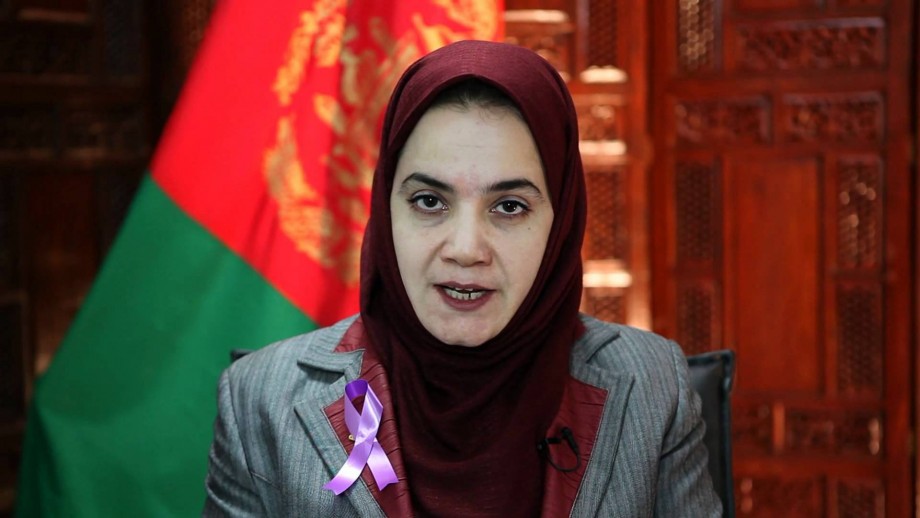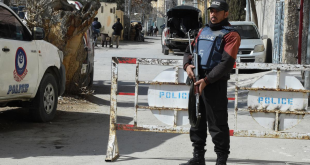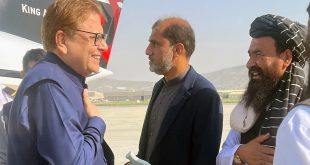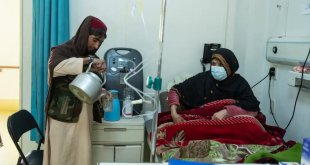KABUL: The Taliban assured participants of a two-day informal meeting in Qatar that they were not against women’s participation in politics, an Afghan delegation member said on Monday.
The two days of informal talks on Saturday and Sunday were organized in Doha by a Canada-based organization, Pushwag Council that works for solution to international conflicts.
An eight-member Taliban delegation and a 20-member Afghan government delegation took part in the research conference titled “Afghan dialogue” aiming at ending the long-running conflict in Afghanistan.
The Afghan delegation included members of the High Peace Council, lawmakers, politicians and civil society activists. A delegation of the Gulbadin Hekmatyar-led Hezb-i-Islami of Afghanistan (HIA) also participated in the conference.
Malalai Shinwari, who was part of the Afghan delegation, told Pajhwok Afghan News the Taliban representative, Abbas Stanikzai, twice insisted on women’s rights in his remarks at the conference.
She said the Taliban representatives spoke about women’s rights in their opening remarks and then she (Malalai) talked about women’s rights in Afghanistan and then again the Taliban representatives, including Stanikzai, talked about women’s rights.
Later, she said, the Taliban representatives held talks with female participants on the sidelines of the meeting and took them into confidence about women’s rights.
Malalai and two more Afghan women, Leena and Woghma, who serve as defence lawyers for Taliban detainees, took part in the talks.
Malalai Shinwari said Abbas Stanikzai told her that they could not deny women rights enshrined in Islam like choosing life partner, education and the right to work. She said Stanikzai said the Taliban were not against women’s participation in politics.
She said the Taliban leaders lashed out at the Afghan government for the rights it had given to the Afghan women. Stanikzai asked what the Afghan government did with Shurkia Barakzai, a lawmaker from Kabul. He said Barakzai was first appointed the head of the newly-created electoral reforms commission and then suddenly removed her.
He repeatedly mentioned Farkhunda, a 27-year-old woman, who was lynched by a mob of men in Kabul. Stanikzai said women in Kabul said the gains made over the past 13 years should be preserved. “What kind of gains they are when a woman is lynched in the heart of Kabul by a handful of goons,” asked the Taliban representative.
Shinwari said Stanikzai acknowledged the Taliban had committed some mistakes during their regime like banning women’s education, which he said was their urgency. Stanikzai said the Taliban wanted to protect women and they lacked financial resources at the time to provide women education.
“Stanikzai told me that women can do any job, they can be doctors and engineers,” Shinwari said. She said a Taliban representative led prayers on the first day of the conference and she also stood in lines behind him.
“I told the prayer leader that I am worshiping for myself not because I afraid of you,” said Shinwari, who told the story of a mother to the Taliban.
“I told them that there is a woman in our village. One of her sons was a member of the Taliban and he got killed and her second son who was a policeman also got killed. For the mother, her sons were important not what they chose for themselves.”
“After this conversation when we were sitting to drink tea, a Taliban representative, Jan Mohammad Madani, came to me and said my story made him cry.”
Shinwari said before reaching Qatar, she had a different picture of the Taliban in her mind. “Ghairat Baheer of the HIA and other former jihadis were also present, but I found the Taliban like others or even gentler.”
She said Abbas Stanikzai told her he was tired of the war and wanted his son and daughter live in a peaceful environment.
“You were the ones who made us wear buqa. I was afraid thinking you would talk to us or not, but they laughed and said how did I find them,” she said of her conversation with the Taliban representatives.
Shinwari said she told the Taliban leaders that the women of Afghanistan bore the brunt of the conflict despite the fact they did not fight, thus deserving peace.
She said the Taliban leaders claimed the Afghan government was not committed to peace and insisted on the constitution of the dialogue process. It seemed such a gathering would take place in a month’s time to further overcome the trust deficit between the two sides, she said. (PAN)
 Afghanistan Times
Afghanistan Times




